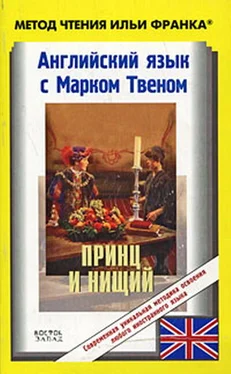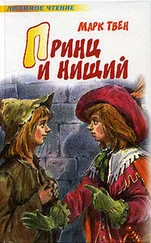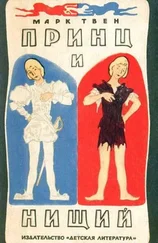After a while the weather grew milder (через некоторое время погода стала мягче), and the clouds lifted somewhat (и тучи рассеялись отчасти; to lift — поднимать(ся)). The troop ceased to shiver (ватага перестала дрожать), and their spirits began to improve (и их настроение начало улучшаться; to begin — начинать). They grew more and more cheerful (они становились все более и более радостными; to grow — расти; становиться), and finally began to chaff each other (и наконец начали поддразнивать друг друга) and insult passengers along the highway (обижать прохожих вдоль дороги = на дороге). This showed (это показало) that they were awaking to an appreciation (что они просыпались к восприятию) of life and its joys (жизни и ее радостей) once more (снова). The dread in which their sort was held (ужас, в котором их порода воспринималась = ужас перед ними; to hold — держать) was apparent in the fact (был очевиден = проявлялся в том факте) that everybody gave them the road (что все давали им дорогу), and took their ribald insolences meekly (и принимали их грубые/непристойные дерзости смиренно), without venturing to talk back (без решимости = не решаясь ответить). They snatched linen from the hedges (они хватали = снимали белье с изгородей), occasionally (порой), in full view of the owners (в полном виде = на глазах у владельцев; to own — владеть), who made no protest (которые не делали протеста = не протестовали), but only seemed grateful (но только казались благодарными) that they did not take the hedges, too (что они не взяли изгородей впридачу).
By and by they invaded a small farmhouse (вскоре они вторглись в маленький фермерский домик) and made themselves at home (и расположились как дома: «сделали себя дома») while the trembling farmer and his people (пока дрожащий крестьянин и его домочадцы) swept the larder clean (опустошали кладовку; to sweep clean — очищать: «мести чисто») to furnish a breakfast for them (чтобы обеспечить завтрак для них; to furnish — снабжать; доставлять, предоставлять). They chucked the housewife and her daughters under the chin (они трепали хозяйку и ее дочерей по подбородку) while receiving the food from their hands (получая пищу из их рук), and made coarse jests about them (и отпускали соленые шутки про них; coarse — грубый, шероховатый; невежливый, напристойный), accompanied with insulting epithets and bursts of horse-laughter (сопровождаемые оскорбительными эпитетами и взрывами лошадиного хохота). They threw bones and vegetables at the farmer and his sons (они бросались костями и овощами в фермера и его сыновей; to throw — бросать), kept them dodging (заставляли их увертываться: «хранили их уворачивающимися»; to keep — хранить) all the time (все время), and applauded uproariously when a good hit was made (и аплодировали шумно, когда удачный удар = попадание бывало сделано). They ended by buttering (они окончили тем, что вымазали маслом) the head of one of the daughters (голову одной из дочерей) who resented some of their familiarities (которая отвергла некоторые из их фамильярностей). When they took their leave (когда они уходили: «взяли свой уход») they threatened to come back and burn the house (они пригрозили вернуться и сжечь дом) over the heads of the family (над головами семьи) if any report of their doings (если какое-то донесение об их деяниях) got to the ears of the authorities (достигло бы ушей властей; to get — достигать).
mild [maıld], dread [dred], threaten [`θretən]
THE troop of vagabonds turned out at early dawn, and set forward on their march. There was a lowering sky overhead, sloppy ground under foot, and a winter chill in the air. All gaiety was gone from the company; some were sullen and silent, some were irritable and petulant, none were gentle-humored, all were thirsty.
The Ruffler put 'Jack' in Hugo's charge, with some brief instructions, and commanded John Canty to keep away from him and let him alone; he also warned Hugo not to be too rough with the lad.
After a while the weather grew milder, and the clouds lifted somewhat. The troop ceased to shiver, and their spirits began to improve. They grew more and more cheerful, and finally began to chaff each other and insult passengers along the highway. This showed that they were awaking to an appreciation of life and its joys once more. The dread in which their sort was held was apparent in the fact that everybody gave them the road, and took their ribald insolences meekly, without venturing to talk back. They snatched linen from the hedges, occasionally, in full view of the owners, who made no protest, but only seemed grateful that they did not take the hedges, too.
By and by they invaded a small farmhouse and made themselves at home while the trembling farmer and his people swept the larder clean to furnish a breakfast for them. They chucked the housewife and her daughters under the chin while receiving the food from their hands, and made coarse jests about them, accompanied with insulting epithets and bursts of horse-laughter. They threw bones and vegetables at the farmer and his sons, kept them dodging all the time, and applauded uproariously when a good hit was made. They ended by buttering the head of one of the daughters who resented some of their familiarities. When they took their leave they threatened to come back and burn the house over the heads of the family if any report of their doings got to the ears of the authorities.
About noon (около полудня), after a long and weary tramp (после долгого и утомительного перехода), the gang came to a halt (шайка остановилась: «пришла к остановке») behind a hedge (за изгородью) on the outskirts of a considerable village (в окрестностях большой деревни; considerable — значительный, заслуживающий внимания; большой, немалый). An hour was allowed for rest (час был отведен на сон; to allow — позволять), then the crew scattered themselves abroad (затем компания разбрелась в стороны; to scatter — разбрасывать, рассеять(ся)) to enter the village at different points (чтобы войти в деревню в разных местах) to ply their various trades (чтобы заняться своими разными ремеслами). 'Jack' was sent with Hugo («Джек» был послан с Хьюго; to send — посылать). They wandered hither and thither (они бродили туда и сюда) for some time (некоторое время), Hugo watching for opportunities (Хьюго — ищущий возможностей) to do a stroke of business (чтобы совершить какое-нибудь дело; stroke — удар, усилие, ход) but finding none (но не находящий ни одной) — so he finally said (так что он наконец сказал):
Читать дальше
Конец ознакомительного отрывка
Купить книгу




![Марк Твен - Принц и нищий [Издание 1941 г.]](/books/148799/mark-tven-princ-i-nichij-izdanie-1941-g-thumb.webp)







